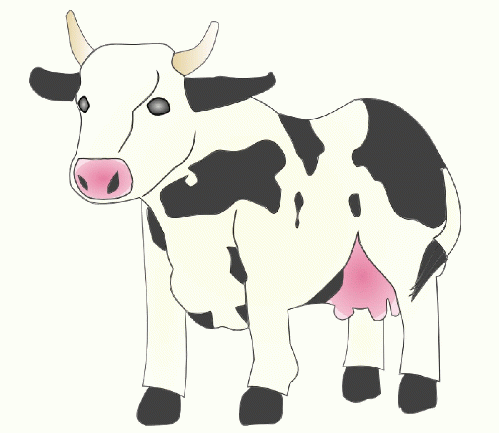| Back OpEd News | |||||||
|
Original Content at https://www.opednews.com/articles/Are-You-Eating-Meat-With-D-by-Martha-Rosenberg-Agriculture-And-Forestry_Animals_Corporations-Agriculture_Drug-Companies-Marketing-180105-257.html (Note: You can view every article as one long page if you sign up as an Advocate Member, or higher). |
|||||||
January 5, 2018
Are You Eating Meat With Drug Residues?
By Martha Rosenberg
Factory farming which confines animal "units" to minimal space to save money has been a boon for Animal Pharma. Such "efficiencies" require high use of growth-producing drugs and drugs to treat and prevent diseases caused by crowding, stress, and immobility. Despite the drugs, tragic losses from bird flu and porcine epidemic diarrhea virus have occurred which Big Food has largely kept hidden from the public.
::::::::
Most People Are But They Do Not Realize It
Most people have heard of the drug companies Pfizer, Eli Lilly and Merck but not necessarily Animal Pharma companies with names like Zoetis and Elanco. Animal Pharma operates under the public's radar because the hormones, antibiotics, growth promoters, antiparasite and fungal drugs and vaccines it uses are not on the food labels. Nor do ads for the drugs appear on TV or safety scandals about them reach Capitol Hill. Still, Animal Pharma is a huge revenue engine for Pharma that sells drugs by the ton and provides a never-ending supply of compliant "patients."

Huge, GMO-linked dairies supply some of Ben & Jerry's products
(Image by Martha Rosenberg) Details DMCA
Factory farming which confines animal "units" to minimal space to save money has been a boon for Animal Pharma. Such "efficiencies" require high use of growth-producing drugs and drugs to treat and prevent diseases caused by crowding, stress, and immobility. Despite the drugs, tragic losses from bird flu and porcine epidemic diarrhea virus have occurred which Big Food has largely kept hidden from the public.
The drugs used in Big Food's meat production would be a tough sell if the public knew about them. For example, who wants to eat an animal treated with the antibiotic tilmicosin? The drug label, intended for the farmer, says, "Not for human use. Injection of this drug in humans has been associated with fatalities." Tilmicosin's label even has an emergency phone number printed right on the bottle, as well as a note telling physicians what to do in case the farmer accidentally injects himself. (It says, "The cardiovascular system is the target of toxicity and should be monitored closely. Cardiovascular toxicity may be due to calcium channel blockade.") Yet tilmicosin is widely used in food animals and even shows up in the milk of treated dairy cows, reports central Ohio's WBNS-10 TV news.
Who wants to eat pork, beef and turkeys made with the widely used growth producing drug ractopamine? Its label says, "Not for use in humans...Use protective clothing, impervious gloves, protective eye wear, and a NIOSH [National Institute for Occupational Safety and Health]-approved dust mask."
Three years after ractopamine's 1999 approval for pigs, the FDA accused its manufacturer Elanco, Eli Lilly's animal subsidiary, of withholding information about ractopamine's "safety and effectiveness" and "adverse animal drug experiences" in a 14 page warning letter.
Ractopamine is banned in Europe, China and 160 countries and actually caused riots in Taiwan in 2007. A rumor that Taiwan's ractopamine ban was going to be lifted caused 3,500 pig farmers and party members to congregate at the Department of Health and Council of Agriculture in Taipei City some carrying pigs and throwing dung.
The USDA's Food Safety and Inspection Service has found the antibiotic gentamicin in dairy cows sold for food. Gentamicin is an antibiotic so dangerous that there is no published tolerance in edible animal tissue. One dairy farm caught selling gentamicin-contaminated animals for public consumption--Willet Dairy in Locke, New York--was featured on Nightline in 2010 for animal abuse. Gentamicin is known for harming kidneys and ear/balance systems in humans and for remaining in livestock for 18 months or more.
A 2010 USDA Office of the Inspector General report found violative levels of metals, anti-parasite vaccines and medicines were knowingly released into the human food supply. The metals included copper and arsenic. Also found in meat released to the public were penicillin, the antibiotics florfenicol, sulfamethazine and sulfadimethoxine, the anti-parasite drug ivermectin and the nonsteroidal anti-inflammatory drug flunixin. Four plants, said the report, had an astounding 211 drug residue violations, but repeat violators--"individuals who have a history of picking up dairy cows with drugs in their system and dropping them off at the plant"--are widely tolerated by the inspection service, says the report.
Animal Pharma's unlabeled drugs are dangerous for animals too. Images of cattle crippled on Zilmax, a chemical cousin to ractopamine, moved Tyson temporarily to tell feedlot customers it would not accept Zilmax-fed cattle and Merck temporarily suspended Zilmax sales. In a short period of time, the FDA reported 285 US cattle dying unexpectedly or being destroyed after being fed Zilmax, 75 animals losing hooves and 94 with pneumonia. The drug is again for sale by Merck "For increased rate of weight gain, improved feed efficiency, and increased carcass leanness in cattle fed in confinement for slaughter during the last 20 to 40 days on feed."
Authors Bio:
Martha Rosenberg is an award-winning investigative public health reporter who covers the food, drug and gun industries. Her first book, Born With A Junk Food Deficiency: How Flaks, Quacks and Hacks Pimp The Public Health, is distributed by Random House. Rosenberg has appeared on CSPAN and NPR and lectured at medical schools and at the Mid-Manhattan Public Library.